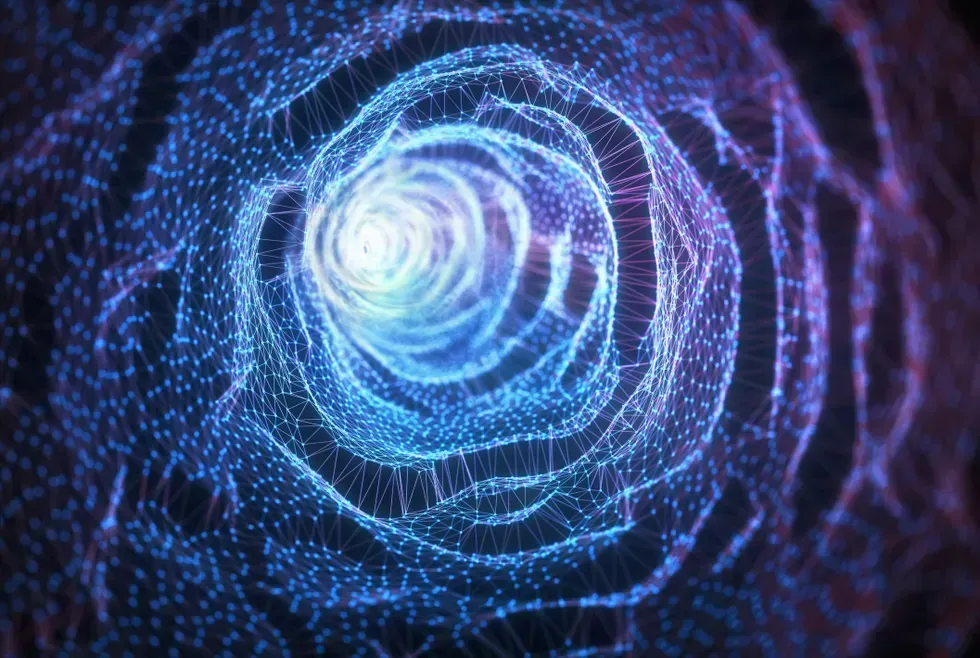Are We Living in a Holographic Universe?
Scientists are using a new method to study black holes that could unlock the secrets of quantum gravity. The method uses a two-dimensional matrix to describe the three-dimensional surface of a black hole. This could help scientists understand the event horizon and unlock secrets about our universe.

Black holes have a complex shape. Inside, gravity exists in three dimensions. But black holes are also connected to outside particles and magnetic fields that only exist in two dimensions. So how can a black hole exist in both two dimensions and three dimensions at the same time?
- New math helps define and explore the surface and interior of black holes.
- String theory turns objects into systems of numbers that can be studied.
- Holographic duality could help link the standard model and relativity physics for good.
Scientists say there’s a mathematical phenomenon at work here called the “holographic duality theory.” Juan Maldacena, an Argentine theoretical physicist, discovered the concept in 1997, which states that events inside a space with gravity (like a black hole) are mathematically equivalent to gravity-free events on the surface of that space that involve particles.




